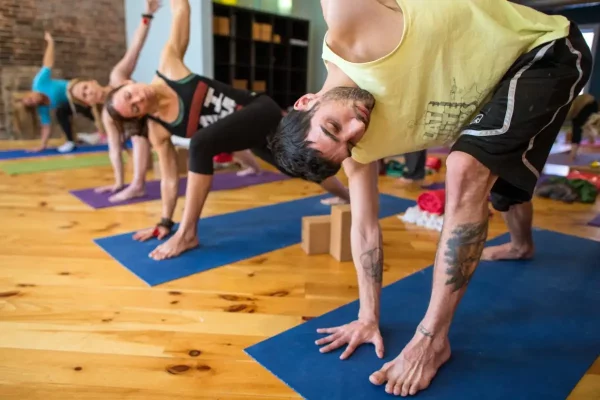High blood pressure is one of the most common health issues today, affecting over 1.13 billion people worldwide (World Health Organization, 2021). It is a leading risk factor for serious cardiovascular diseases. However, you don’t always need to rely on medication to manage your blood pressure. Small changes in daily habits can help maintain stable blood pressure and improve overall health.
Daily exercise is one of the most effective ways to naturally reduce blood pressure. Aerobic activities such as walking, cycling, or swimming for just 30 minutes a day have been shown to lower systolic blood pressure (the top number) by up to 10 mmHg. “According to research published in the journal Hypertension (American Heart Association, 2018), physical activity not only improves blood pressure but also enhances heart health.” Combining strength training exercises like weightlifting can yield similar benefits, reducing pressure on the vascular system.

Diet also plays a crucial role in regulating blood pressure. The DASH diet (Dietary Approaches to Stop Hypertension), recommended by the U.S. National Heart, Lung, and Blood Institute, can lower blood pressure by 8-14 mmHg by reducing salt intake and increasing potassium from fruits and vegetables. Foods rich in omega-3s, such as salmon, chia seeds, and walnuts, are also beneficial for reducing inflammation and lowering blood pressure. Additionally, you should limit processed, salty, and fatty foods to reduce the burden on the cardiovascular system.
Weight loss is another important method for managing blood pressure. “Research from Harvard University (2017) indicates that losing 5-10 kilograms can lower systolic blood pressure by 5-20 mmHg, improving heart function and reducing the risk of complications.” This is achieved by reducing blood volume and decreasing pressure on blood vessel walls.
Prolonged stress is a significant yet often overlooked cause of high blood pressure. Techniques such as meditation, yoga, or deep breathing can significantly reduce stress levels and blood pressure. “A study published in the journal Psychosomatic Medicine (2016) found that meditation lowers average blood pressure by 4-8 mmHg by reducing cortisol levels, the stress hormone.” Spending a few minutes each day relaxing or practicing mindfulness can make a substantial difference.

Quality sleep is another key factor in improving blood pressure. Sleeping for 7-8 hours each night helps lower stress and enhances cardiovascular function. “Research from the Stanford Center for Sleep Medicine (2019) confirms that adequate, quality sleep can significantly reduce blood pressure and improve overall health.” People who consistently lack sleep are at higher risk of developing cardiovascular diseases and hypertension.
Limiting alcohol and tobacco consumption is a simple yet highly effective change. “According to the U.S. National Institutes of Health (2017), reducing alcohol intake and quitting smoking can lower blood pressure by 2-10 mmHg, while protecting blood vessels from long-term damage.” These lifestyle changes not only help manage blood pressure but also improve overall health and longevity.

Incorporating these daily habits will not only help you maintain stable blood pressure but also improve overall health. Small but consistent changes will bring lasting results, helping you live a healthier life while reducing the risk of cardiovascular diseases.
“Adjusting your diet not only helps stabilize blood pressure but also significantly improves heart health and reduces the risk of related diseases.” – Dr. Michael Greger, Nutrition Expert, 2020


HPX24h > Health > Daily Habits to Naturally Manage Blood Pressure Without Medication
Tagged Articles
Effectively Lower Blood Pressure with 4 Common Kitchen Vegetables
Top Reads from This Category
Health
Chemicals in Cosmetics That Could Increase Breast Cancer Risk – Did You Know?
Health
Are ‘Forever Chemicals’ Present in Bandages? How This Could Affect Your Health
Health
The Mystery of Newborn Weight: How Does It Progress Each Month?
Health
Chemicals in Tattoo Ink: Are They Linked to Blood and Skin Cancer?
Health
5 Essential Things Every Woman Should Know About Menopause
Health
Natural Remedies for Stomach Pain Every Parent Should Know
Health
Fruits That Can Spike Blood Sugar Levels: Be Cautious
Discover New Topics
Space
18 New Planets: Unlocking the Gateway to Exploring Giant Star Systems
Parenting Tips
Excessive Night Sweating in Children – A Normal Occurrence or a Cause for Concern?
Fitness
Postpartum Fitness: Secrets to Maintaining an Active Routine for a Quick Recovery
Parenting Tips
Teaching Children Respect: Simple Tips for Parents with Kids Aged 6 to 8
Fitness
Ketosis: The Key to Accelerating Effective Fat Burning
Healthy Eating
Robert F. Kennedy Jr.: “We Are Being Poisoned Without Knowing It”
Animals
Can Hyena Dogs Be as Smart as Primates?
Science
Your Body Is Not the Same as It Was 10 Minutes Ago: The Continuous Regeneration Process of the Human Body
Fitness
What is the Ideal Heart Rate for Running?
Science
A New Era in HIV Prevention: Vaccine Set to Launch
Science
China’s Hypersonic Jumbo Jet Could Cut Beijing to New York Flight Time to Just 2 Hours
Healthy Eating
Ways to Reduce Sugar in Your Diet to Prevent Diabetes
Fitness
How Long Does It Take to Build Muscle?